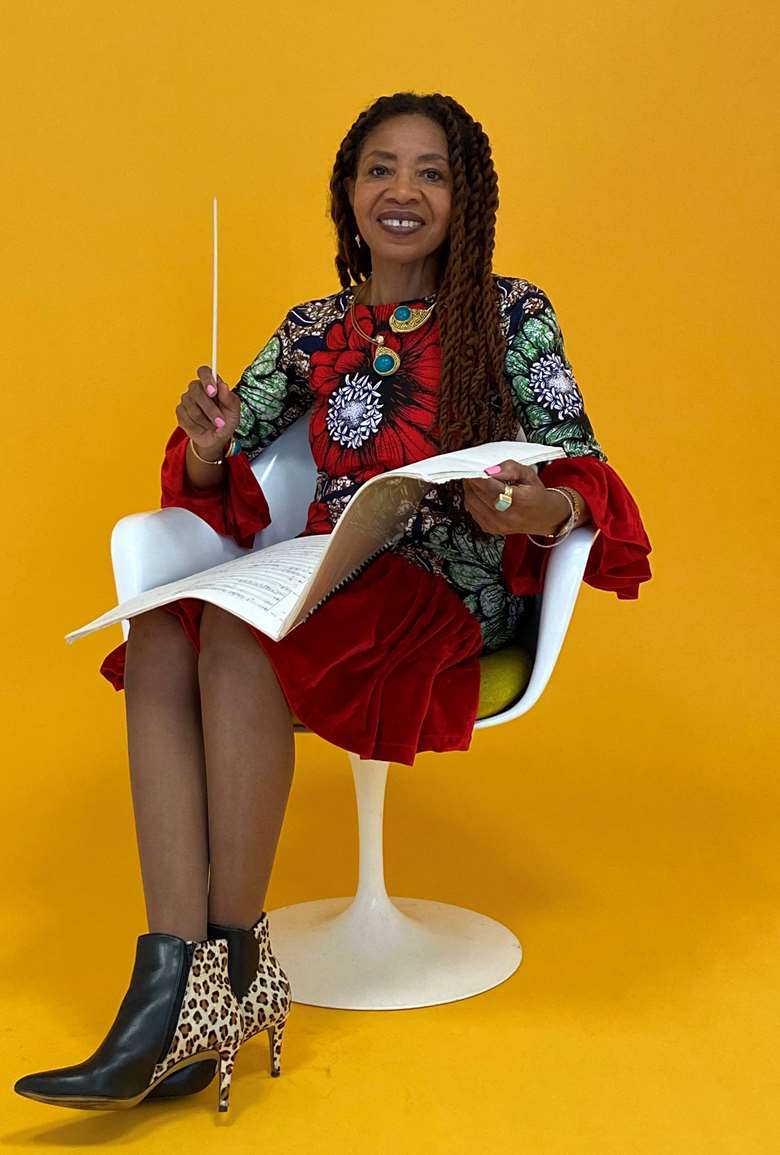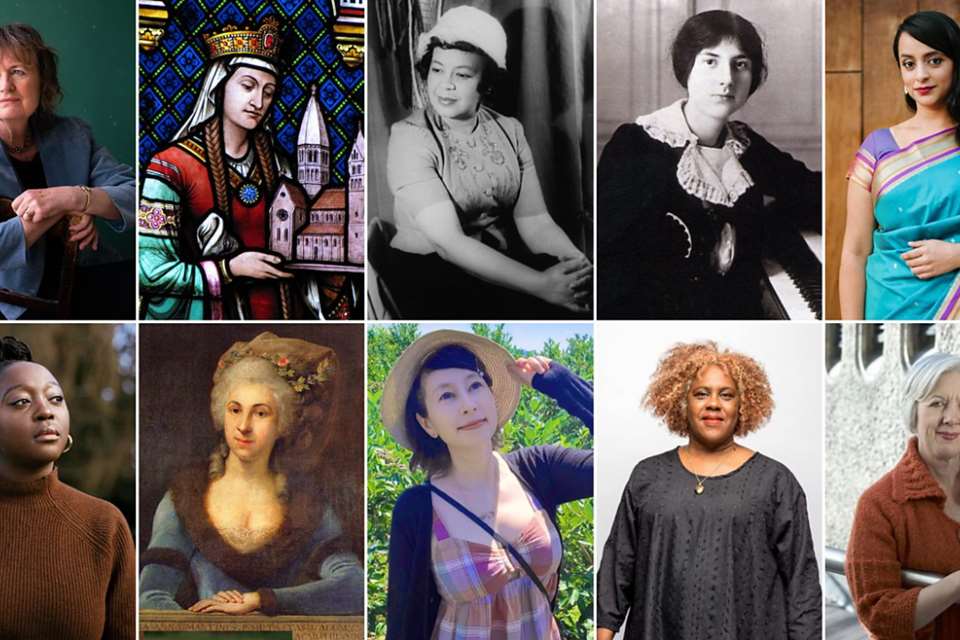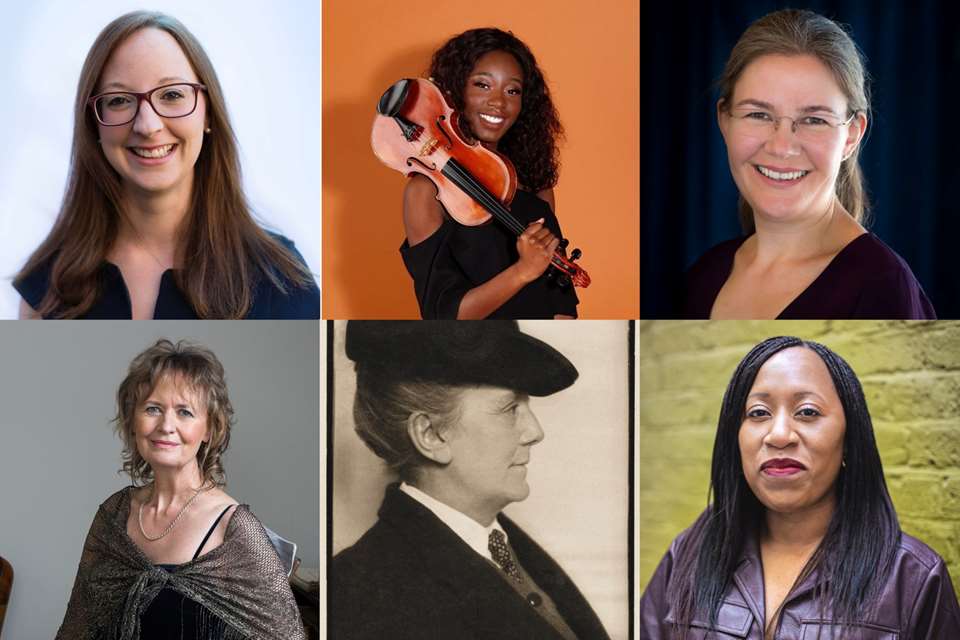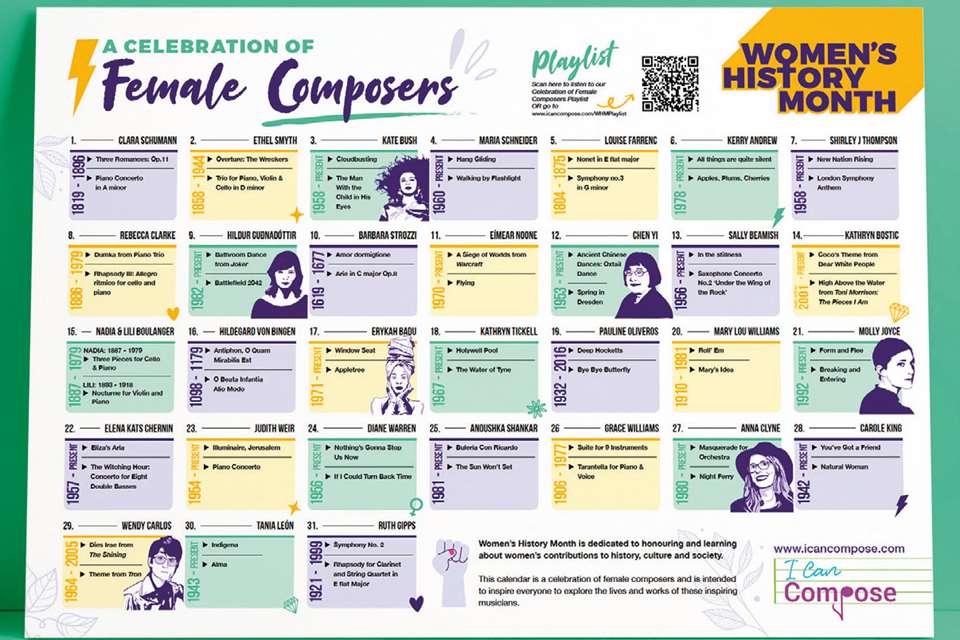Composer profile: Shirley J. Thompson OBE
Phil Croydon
Monday, April 1, 2024
Artistic director, professor, conductor and violinist Shirley J. Thompson has been described as a distinctive voice in contemporary British music. MT's Phil Croydon caught up with her to hear her views on composing, music education and what's made her who she is.

Wunmi Onibudo
Being one of the composers chosen by King Charles to compose music for the Coronation in 2023 put Shirley J. Thompson on many of our screens and arts pages. When not writing a musical response to ‘Be Thou my Vision’ for the Coronation, she teaches at the University of Westminster and writes symphonies, ballets, operas, and anthems performed at Westminster Abbey. Beforehand, she was a precocious student of theory, harmony and counterpoint, and acquired Grade 8 Theory (with distinction) at an impressively young age.
In case this sounds like standard fare for an English composer of a certain circle, it's worth noting also that Thompson is an aficionado of contemporary dance, a film-maker, historian and cultural activist. And she enjoys Gil Scott-Heron and RnB as much as she does Mozart or Brahms. She's the artistic equivalent of a polyglot.
‘I was always curious about things, about everything, including science, history, philosophy’, she explained. ‘From school, I remember my teacher saying, out of the blue, “you've got a thirst for learning”, and I think this helped.’
Formative years
In various interviews, Thompson has talked warmly of growing up in East London. Her parents moved to Stratford from Jamaica as part of the Windrush generation in the late 1950s, and she was always surrounded by music of one sort or another. At school, Thompson took up the violin, joining the Newham Youth Orchestra at the age of 10, and her musical education at school and in various local choirs and youth orchestras left an indelible mark. ‘Basically, between the ages of 11 and 18’, she explained, ‘I performed all the classical and romantic repertoire there was – the complete canon.’ She took up the piano at 14.
The Shirley Thompson Ensemble
One sure fire way of cutting your teeth as a composer is to conduct your own compositions. Recent music history is full of successful composers having led their own ensembles, and players sympathetic to new music.
Thompson is no different in this regard and puts much of her early success down to The Shirley Thompson Ensemble, formed in 1994. This became an expressive canvas for including singers, dancers, visual artists, and for fusing contemporary classical music orchestration with improvisation, popular music and non-Western styles. She also developed compositions that integrated video imagery.
‘When I left university and realised it wasn't going to be easy to get performances’, explained Thompson, ‘I was lucky enough to be approached by a promoter with a view to setting up my own ensemble. I was used to getting ensembles together at university and so I set up the ensemble, writing specifically for the players involved.’
The ensemble was unique in scope, ‘using drum-kit, electronic instruments, video, dancers and singers in a way that pop musicians would’, she explained. ‘I was doing this because of my interest in pop music performance and in how this all seemed more engaging. I could create a stage that was familiar to the general public, more so than with a conventional classical look.’
This mix, she added, ‘really set off a trend, and we were always getting full houses at the Southbank Centre’.
Conducting
Was the Ensemble, I asked, also where she cut her teeth as a conductor? Not exactly. ‘Conducting came about in a very strange way’, Thompson clarified. ‘There was a musician in a contemporary classical ensemble who asked me to write a piece for mixed instrumental ensemble, and a week before the premiere (at the Purcell Room) the group asked her to conduct her own work. She was left little choice, despite only ever having had one lesson in conducting. However, she boldly got on stage, persevered, and conducted the work Song of Dawn.
‘It was a very difficult piece to conduct, with lots of time changes. Anyway, I struggled through and, after doing so, thought I might as well carry on with the conducting.’
Song of Dawn brought another valuable lesson. It started life as her ‘dream piece, with my own crazy time signatures – the sort you learned about at Goldsmiths College’, where she was a postgraduate. But in due course, ‘I stopped writing in 7/8 time, 5/16 and so forth, and now pretty much write in 3/4 and simple time-signatures – just in case I have to conduct it!’
At the time of writing, Thompson is putting the finishing touches to a new string trio, written entirely in 3/4 time as it happens. ‘But what I do in 3/4 you can still do with changing time-signatures’, she explained. Rather than constantly changing the time signature (‘which looks complicated on the page’) she writes as if bar lines aren't there. ‘I am never on the first beat with anything. It's which part of the bar you're using that makes things interesting’, she added with a smile.
On education
In a recent interview with The Guardian, Thompson was described as having strong views on music education. Naturally, I wanted to learn more, and began by asking what changes she'd like to see.
For starters, she doesn't understand the aversion, in some quarters, to teaching stave notation, including to an advanced level. She recognises what a grounding Grade 8 Theory provided for what she wanted to do, such as write for orchestra, and she values her strong grasp of harmony and counterpoint, thanks to good coaching. This ‘way in’ was central to developing the right skill-set for the longer journey. She also remembers, fondly, her small A-Level Music group at school, and teachers who were ambitious and keen to nurture these skills.
‘If notation isn't taught’, she explained, ‘we deny musicians the chance to be versatile and to earn a living’, to say nothing of the practical benefits of being able to communicate at speed. ‘Understanding notation also means being able to learn about music, to sample different types and assimilate ideas.’
Second, Thompson would like to see schools and colleges ‘teach a more rounded music history, and to see classical music globally’. She reflected on her time as an undergraduate, in Liverpool, studying ‘the canon’, and on how Eurocentric this was, ‘presented without a wider historical context’.
‘It's important to include all the events that have been left out of the usual narrative’, she continued. ‘So, for example, when I studied the history of music, it was the history of western Europe because it was Europe that colonised most of the globe. But this can't be studied in isolation. Cultures merged with trade, and were developed through trade with Africa, China, India, the Middle East for at least 2,000 years. You can't teach the history of Europe without teaching history that includes all continents.’
I was beginning to see the historian coming through loud and clear, but also the inspiration behind her Heroines of Opera series, featuring remarkable women who have been overlooked in mainstream historical narratives. This interest formed part of her PhD research, and led her also to the music of other women composers and vital yet unknown repertoire.
The last point about music education that Thompson wanted to make concerned ‘performing music in all contexts and learning through experience’, or being open to things you don't yet know you need. Which brought us back to the importance of being curious.
‘For composers, the whole experience is a voyage of discovery’, she explained. ‘I do many things as well as being a composer because I want to be able to do everything. I think there's so much to learn in life, and we're in the greatest time in history to learn. That's what I'd like to convey to my students.’
Recommended listening
Heroines of Opera series:
- The Woman Who Refused to Dance (2007)
- Sacred Mountain: Incidents in the Life of Queen Nanny of the Maroons (2015)
- Memories in Mind: Women of the Windrush
New Nation Rising: A 21st Century Symphony. Commissioned for Queen Elizabeth II's Golden Jubilee (2002) and part of the 2012 Olympics Opening Ceremony. Thought to be the first symphony a European woman has composed and conducted in the last 40 years.
Shift. Dance score for solo cello and string orchestra, part of the award-winning ballet PUSH
shirleythompsonmusic.com




